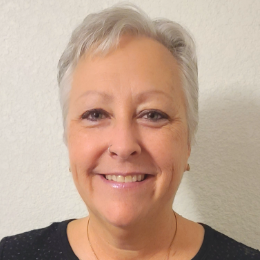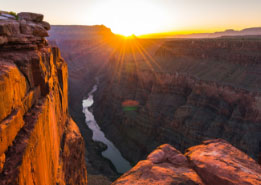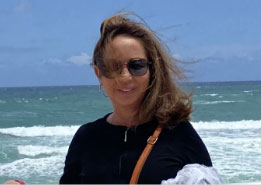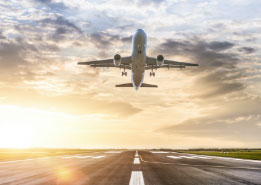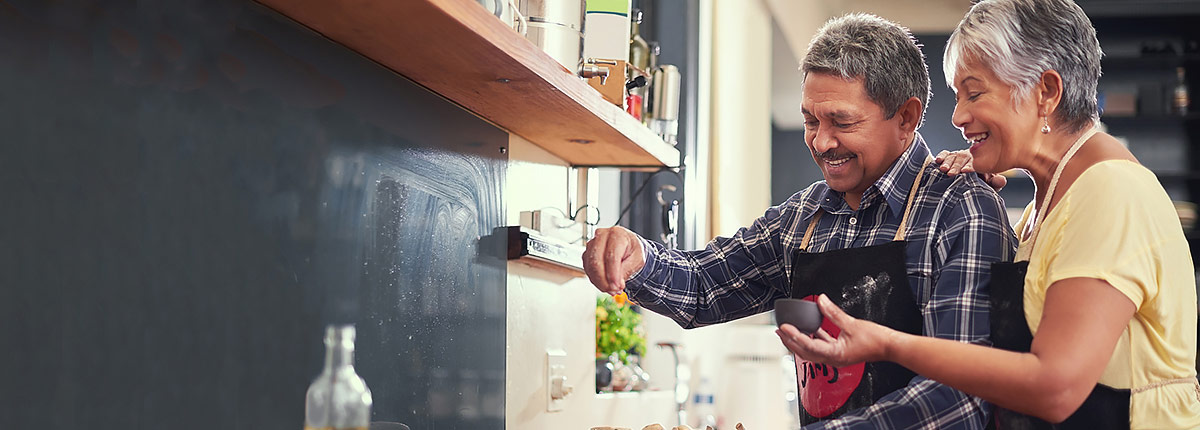Transcript
Vanessa:
Hello and welcome to visits with Vanessa, a podcast where we speak with home hemodialysis patients and care partners about their experiences doing home dialysis. Today’s episode will focus on traveling with your portable NxStage system. Our topics will include things to consider before you travel, things to consider when you get to your location, as well as a few other tips to make it a great trip. I’m a dialysis patient for over 23 years, and I am also the senior manager of Advocacy and communications for Fresenius Medical Care. I’m excited to share my own personal journey and experiences with traveling. I have a great friend, patient advocate, and care partner, Dawn, who’s going to join me. Before I start, I do want to say that Dawn is a paid advocate for NxStage. Dawn, can you introduce yourself today?
Dawn:
Absolutely my name is Dawn, and I am a care partner for my husband Jimmy. He has been a dialysis patient for 13 years and for about 7 and a half of those years we have done home hemodialysis and used the NxStage system.
Vanessa:
That’s great, Dawn, thanks so much for joining us today. We have a lot to discuss, a lot of people don’t realize that you are able to travel with home hemodialysis and the NxStage system. That being said, we are dealing with COVID-19 and it’s important to take every precaution when you travel because you want to make sure that you’re traveling safely, right? So I know that I myself was fully vaccinated before I took any trip this past year, so I got both my shots. How about you Dawn?
Dawn:
Oh absolutely, Jimmy and I were both vaccinated as soon as it was available to us.
Vanessa:
Awesome, you also should always talk to your doctor and your health care team. The Pfizer vaccine is actually now FDA approved, so that’s a positive for patients that were waiting until that was approved. And it’s always important to to plan and take your time before planning any kind of a trip. So let’s get into it a little bit Dawn, first, let’s just start by how many trips do you think you and Jimmy have taken?
Dawn:
You know, it’s funny that you say that because Jimmy and I were just discussing this last night and in the seven and a half years that he’s been doing home hemodialysis, I think we’ve taken about 17 trips.
Vanessa:
Wow, that’s a lot of trips, but I’m still ahead of you, Dawn. I think I’ve taken 29 trips within the last five years. Definitely slowed down a little bit with COVID, but I’m happy to be traveling again. Just, making sure that everything is safe. But I’m sure we have a lot of listeners on here today that are probably thinking what do I even do when I take my first trip? How do I get started? What is it that I need to do? How much time do I need to plan? So I thought we could start with kind of dispelling some myths that people might have and discussing what is the first step. So, when you took your recent first trip, tell me a little bit about what’s the first thing that you do when you’re planning a trip.
Dawn:
Well, the first thing we need to do is decide where we’re going and how we’re going to get there. Most of our trips have been by car and so we need to get a hold of our home dialysis nurse 60 days in advance to give them forewarning so that they know they can get all of our supplies ordered so we have them in the right amount of time. After that we have to make sure that we have the soft case reserved because like I said, we’re traveling in car. Now Vanessa, I know you travel by plane a lot. What do you do?
Vanessa:
Yep, so because I am such an avid traveler, actually I have gone ahead and I have purchased my own soft case and hard case. So, on my last trip that I just did not even a week ago, it was by car and so I did put the machine in the soft case and I was able to put it into the car that way. And the trip before that that I did maybe two or three months ago, I used the hard case because I did travel by plane and when you travel by plane it is best advised to take a hard case. So I’m wondering Dawn because you talked a little bit about you asking your home nurse about the cases, is that because you are borrowing a case? Or why would that be?
Dawn:
Yes, yes, I don’t own a case, so we always borrow from the center.
Vanessa:
Yep, that makes sense. So now you’ve called your healthcare team. You’ve done the 60 days in advance because you want to make sure that everything is done in a timely manner and that your stuff has time to arrive and get there safely. Do you do anything in between your trip before you leave? Do you follow up with your healthcare team? Is there anything that we need to do as patients?
Dawn:
Oh absolutely, we need to have a backup plan set up in case there’s an emergency, contact numbers. We need to pack extra supplies because God knows we could have an issue, that happens.
Vanessa:
Yeah, it’s definitely happened before and and definitely a good idea to pack for extra supplies or ask for extra supplies to be delivered. And I also would say that it’s a good idea once you’ve spoken with your health care team and everything is all set up, you do get a confirmation email from NxStage saying that your travel order was put in. If you don’t receive an email then you need to call your healthcare team and ask if they submitted it or you need to reach out to NxStage and ask if there was a prescription submitted. So you want to look out for that email and it’s always good to just check in with your healthcare team and make sure that those pieces are being followed up upon is a great spot. So Dawn, now you’ve done all that, you’ve called, you’ve got your stuff all together. Tell me about your last trip, where did you and Jimmy end up going after you did your first steps?
Dawn:
Oh, we had an amazing trip. We drove to North Carolina with another couple I might add that also does home dialysis and we rented a cabin in the mountains, and it was amazing. I don’t think we could have experienced the things we did with if Jimmy was still in-center.
Vanessa:
That’s great and I do want to clarify for our listeners because I want to make sure that listeners know that there are options. So in your case you went in a car and I’m assuming that you brought your supplies with you. Am I correct to say that? Or how did that work?
Dawn:
Yes, Vanessa, you are absolutely correct. It was just easier for us to load the machine into the car, load our supplies into the car and drive.
Vanessa:
That’s great, now that is one option, right? So you can have some supplies that you have at home. You can load it into a car and off you go. The machine is portable. You can put boxes in and off you go. If you did not want to take those supplies in your car, you are able to work with your healthcare team for your travel prescription and the travel prescription will then be sent to your destination. And if you’re traveling by plane, which is what I did a couple of months ago, you can have your prescription sent to your destination and then you bring your ancillary supplies. Now listeners you might be thinking what are ancillary supplies, right? So ancillary supplies are your needles, your gauze, your band aids, your masks, all the other supplies that you would need in order to perform dialysis in another location. So when you’re traveling friends you can do your travel prescription and then you can bring your ancillary supplies on a plane. The key piece here is to pack the ancillary supplies in a separate bag. So one bag would have all your clothing for the trip and the 2nd bag would have all your ancillary supplies and that’s so that you can differentiate, because the Department of Transportation does have guidelines for traveling with a portable dialysis machine, you can refer to those guidelines and it does ask that your supplies be put in a separate bag. So that’s just an important note that we want to make sure that everybody knows. So Dawn, now you’re on this trip, you’re with your friends, and you know going on vacation is all about making memories, being there with friends and family, discovering new places and having fun. But, you also are with a dialysis patient, so you do need to do treatments and I’m wondering, you know how did you, how were you able to manage dialysis as well as be on the go and vacation with your friends?
Dawn:
The Nice part about it, Vanessa, is that depending on what we had planned for the day that determined when we were going to do dialysis. Now, if we decided we were going to go out on the lake, you know, then we would do dialysis in the evening if we were going to travel then we would do dialysis in the morning. We made it work for us, so we didn’t miss anything.
Vanessa:
Yeah, I relate to that. I basically would look at my schedule and I would say well, what am I doing tomorrow, right? And so knowing what we usually know, pretty much what we’re going to be doing the next day, are we going to the beach? Are we going out to a dinner? And I could move my dialysis treatments based upon my schedule and so if we were getting up early and going to the beach well then I’m going to dialyze you know that evening when we get back. If we were just kind of going to hang around the house and maybe go out later in the day, then I would dialyze in the morning. And it’s important to note that you can change your schedule and make it work for you. You don’t have to be on the same schedule as long as you’re following your prescription. So Dawn as much as we love vacationing and we love the experience, we have a bunch of listeners here that are probably thinking well what are some tips that I should do when I’m traveling? What if there are challenges? What if things arise? So what tips would you give? And then we can talk a little bit about challenges. But what tips would you give to our listeners today when you’re planning a trip?
Dawn:
I would say the number one tip is to be prepared and to be prepared you need to communicate with your team. Communicate with NxStage. Communicate about all of your supplies. Make sure that you have everything you need. Check it and re-check it.
Vanessa:
I would agree with that, and when challenges do arise, you want to make sure because you’ve had that communication with your health care team that there is a backup plan in place and that backup plan may include many of the following: It might be that you go to a local clinic if that’s what you need. It might be that they ship you a supply if that’s what you need, right? Remember that as dialysis patients, home patients, we’re doing more frequent treatments, so that is definitely a plus for us. And if and so challenges arise, you always fall back on your training. And I’m thinking a little bit Dawn about a story that you were telling me about when you and Jimmy traveled, because we know it’s not all unicorns and rainbows. Can you share with the listeners?
Dawn:
Oh absolutely, you know it was an amazing trip. We made awesome memories with great friends, but the day we went out on the pontoon, it was hot and humid, and Jimmy didn’t hydrate as much as he probably should have. And we had a little bit of blood pressure issues that day, and with the training that we had, I was so confident that I could handle the situation not just with the machine, but the treatment itself, and I knew exactly what I needed to do, and then communicated that with his nurse, spoke to NxStage, and got everything set up. Our last day of vacation, our car broke down and we were 900 miles away from home. We have no more dialysis supplies and so I got in touch with our home nurse, I got in touch with NxStage, had a plan in action, all set in case we needed it but we were able to purchase a new vehicle and get home, and he didn’t miss a beat.
Vanessa:
That’s great and a lot of that is the communication that you have. I know some of our listeners, you know might be thinking of a couple of questions, so one they might say well, how far in advance do I need to plan my trip? And so that is 60 days. So you want to make sure that you’re working with your care team at least 60 days in advance, and they’re going to work with the customer service team to be able to put in your prescription. And then the other question that I think we get a lot is there a charge for travel? Is there a charge for travel? and so patients that are wondering this, this is going to depend based upon your own personal prescription and insurance that you might have. And so I would recommend that if you want to know the answer to that question, you speak with your healthcare team and you see if this is something that does apply to you or does not apply to you. Lastly, Dawn going back to some of our questions here. So what advice would you give to a patient? What is the last tip that you would give to a patient that is ready to take their first trip?
Dawn:
I would say that it is so important to communicate with your team. And yes, the first time you do it, it’s scary. It is scary, but you know what? It is so possible. And if you communicate with your team and you are prepared, you take all the steps that you need to for your trip. You are going to make the most amazing memories because home hemodialysis has given us so much freedom.
Vanessa:
I agree with you Dawn, and I’m going to add a couple of things so I would say you know we talked about the first thing you do is you work with your family to figure out where you’re going. If you don’t have a case, you’re going to find out if you can borrow a case and they will put in a travel prescription, your nurse will put in a travel prescription. When you’re going to pack, it’s important to have a checklist. That way you know that you have all of your pieces in, so you’re going to pack all your travel pieces in with a checklist. You want to make sure that you’re planning ahead of time that you have a backup plan should you need it. Hopefully you would not need it, and most importantly, you want to make sure that you’re having fun. And lastly, and this is maybe an an overstep that I do, is if I have bags that are going to be traveling to a family’s house, I always have them arrive a couple of days in advance so I can make sure that they’re there and then I have my family member take a picture of it just because I like to visually see that everything’s there, and that, I think if you do those steps, I think that really helps for a safe and comfortable trip. So to our listeners, if you have any questions, and want to learn more about traveling with NxStage systems, please visit www.nxstage.com. To learn more about home hemodialysis please call one of our patient consultants at 1-888-200-6456. Our consultants are either current or former patients or care partners like you Dawn, that can help get information to learn more about home hemodialysis. It’s important to note that not all patients may experience these benefits. With that, Dawn, thank you so much for joining us today. It was invaluable to hear all about your traveling experiences.
Dawn:
Thank you so much for having me, Vanessa.
Vanessa:
Oh, thank you and for everyone, thank you for joining. I look forward to our next episode with visits with Vanessa. Thank you.
